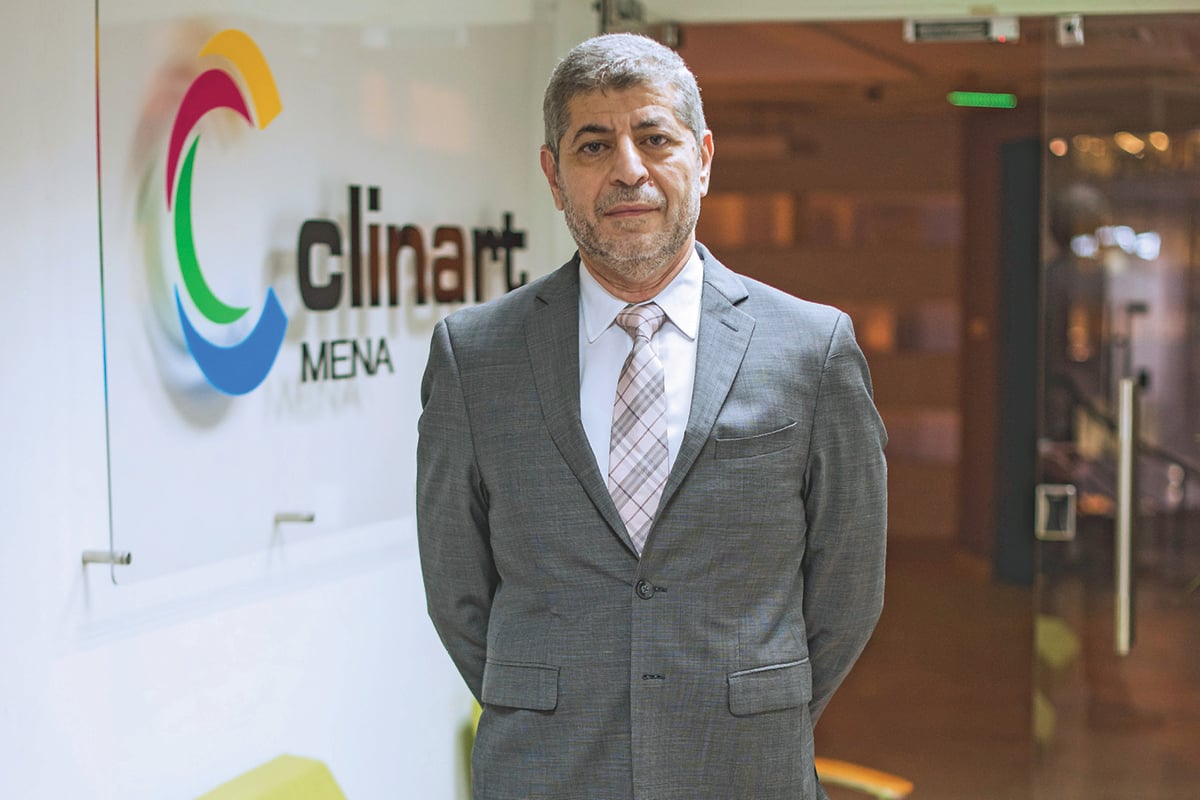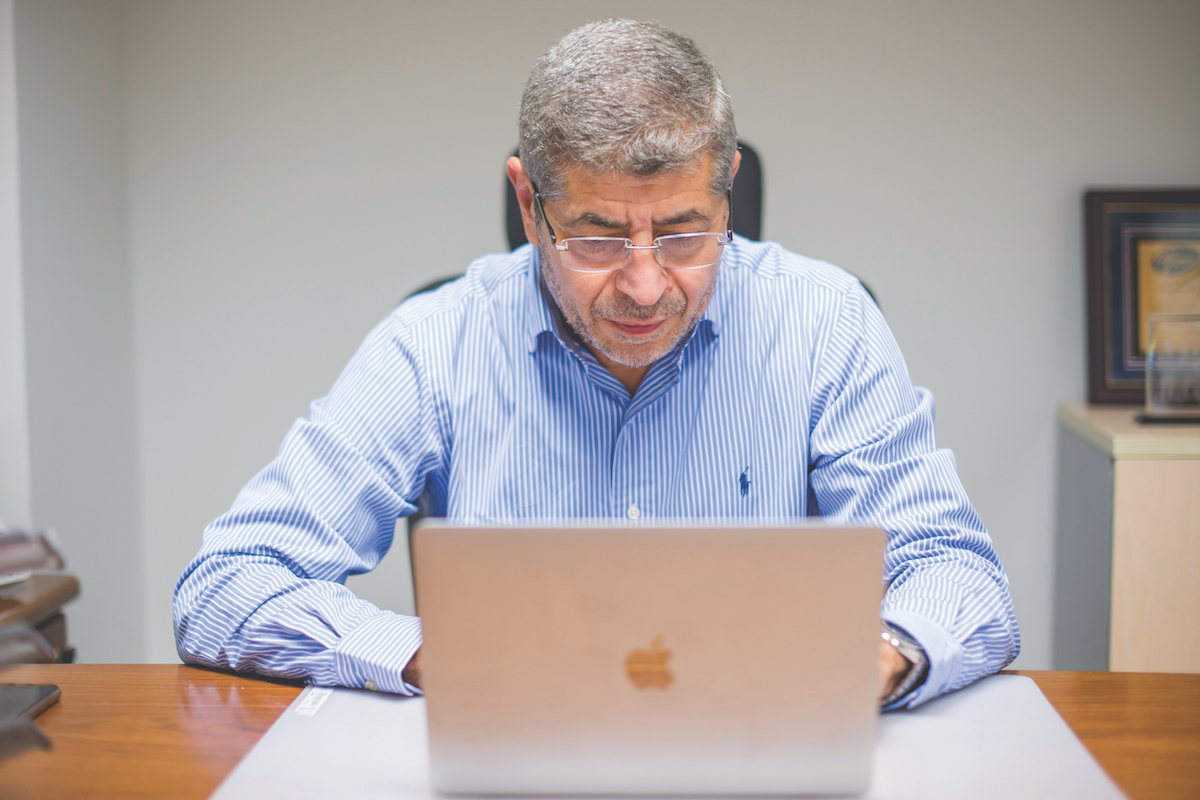Founded in 2008, Clinart MENA is a leading Contract Research Organisation (CRO) offering a broad range of clinical research services, including clinical operation, project management, data management, medical writing and training. With its HQ in Dubai’s Healthcare City, Clinart has established a strong footprint spanning the Middle East and North Africa (MENA) region.
Through its collaboration with pharmaceutical and biotech companies, Clinart plays a pivotal role in providing access to innovative therapeutics for patients in a region of more than 300 million people.

It’s this that makes Clinart not just an important business and a trusted partner for many global CROs and pharma companies, but also one that is attractive to investors. “The potential for growth is huge, as we continue to broaden and strengthen our presence in all markets in the region,” says Clinart MENA CEO and President Alaa Assem. “Along with opportunities to expand our services, there’s a lot of room for this business to grow.”
A physician by training, Alaa began his career in the pharmaceutical industry in 1991. Working in sales and marketing departments before moving into clinical research, medical and regulatory affairs, he has held management positions at Eli Lilly and overseen regulatory and public affairs efforts for Wyeth/Pfizer.
In 2010 he moved to work as an independent consultant, and in 2011 he joined Clinart as CEO and shareholder. “When I joined Clinart, it was a small, privately owned, local CRO. I’m proud of the way we have transformed this business over the years into a regional organisation with a clear corporate structure, with global, regional and local partners.”
“I’m proud of the way that we have transformed this business over the years.”
Clinart benefits from the Middle East being a relatively new region for clinical research and global drug development. “We see a lot of room for us to continue to expand and attract more studies to the region, ultimately putting MENA on the global drug development map.”
Still, Alaa believes that a lack of awareness about what the region can offer complicates that. Further, common misconceptions about MENA can cause investors to hesitate, despite Clinart’s track record in managing clinical trials in ethnically diverse and prosperous nations such as Saudi Arabia, the United Arab Emirates and Kuwait.
“There is a lack of awareness about what the region can offer when it comes to clinical research. We’re a stable business, and we’ve seen a clear indication of what this company can be. Ultimately, we’re hopeful we can see even more growth as we communicate that to investors and potential business partners.”
Alaa comments on company culture and that Clinart is a learning organisation aware of its limitations. “As we grow, we look for ways to improve. We learn from our mistakes, look for opportunities to improve performance, and find new processes and systems to drive efficiency,” he explains.
“What will bring talented individuals to Clinart is our culture of learning, and the growth and development opportunities we are able to provide.”
Alaa describes the business culture as open and transparent, and attractive to talented individuals in the region. “It’s a limited pool, and we need to attract the best. I think what will bring talented individuals to Clinart is our culture of learning, and the growth and development opportunities we are able to provide.”

This is important for Clinart because its ability to expand its client base will hinge on whether it can portray itself as a progressive, inviting business both locally and internationally. “It’s all about identifying new clients and opportunities, whether that’s in the MENA region or through attracting global clients and partners,” he says.
“I believe that the region’s share of the global drug development industry is below its potential, and that we should keep trying to attract more studies to the region and continue to build and improve our capabilities and infrastructure and develop local talents.”
Obviously, this will benefit patients across the region, providing access to new treatment options and improve research capabilities. “We must continue to communicate the importance of that and consolidate the organisation around common goals,” Alaa explains. “We must be aligned on our vision and mission, and we can only do that by clearly communicating to all levels of the organisation.
“We need to set clear goals that are measurable and achievable, while empowering teams to make decisions and encourage creativity and innovation, consistent with the company vision and mission.
“As an extension of that, we have to hold our people accountable. I feel very strongly about that, so while staff are encouraged to take the lead and make decisions, they also need to be responsible for the outcomes of their decisions.
If we can give them that opportunity, then they can become leaders themselves and the business will grow because, ultimately, we need to prepare the next generation of talented leaders who can take the charge and oversee Clinart’s growth.”



